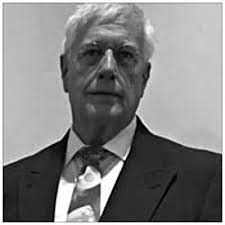 To Serve, or Not to Serve: The good, the bad, the ugly, and the VA
To Serve, or Not to Serve: The good, the bad, the ugly, and the VA
David K. Winnett, Jr. Captain, USMC (Ret.)
With war still raging in Afghanistan and elsewhere, and the ever-growing possibility of more armed conflict looming on the horizon, America’s demand for military recruits is insatiable. The old WWI recruiting poster is still as relevant today as it was in 1916; Uncle Sam points and proclaims “I Want You”.
But why would anyone want to join the military? Why would anyone volunteer for war? Oddly enough, for some potential recruits it’s about survival. As shocking as this may seem to America’s elites, most young Americans are not born into wealth and privilege. Instead of having things handed to them on a silver platter, many of our young men and women find themselves walking barefoot down a gravel road, figuratively speaking. Those not lucky to be born into prosperity are often left to fend for themselves after High School. That is, if they’re fortunate enough to even graduate from High School. Many lack even the basic support system that strong family ties provide.
Personally, I believe that finding one’s own way from that gravel road to one that is paved with the promise of a better future builds character and self-esteem that the privileged will never know. To come from nowhere and become a success without the benefit of rich parents or a strong family support system is an extraordinary achievement, even in America. For me, that gravel road led to the gates of Marine Corps Recruit Depot in San Diego, California.
I enlisted in the Marine Corps in 1975, just after the end of the Vietnam War. I was a High School dropout headed on a road to nowhere. What started out as a four-year enlistment turned into a twenty-year career. I joined for good reason – I needed a job. I stayed for good reason – I needed a job. During my service I was very blessed to have been afforded a number of career-enhancing opportunities, including being able to complete both an Associate’s Degree and a Bachelors Degree on active duty time. I enjoyed a career path that included eleven different Marine Corps ranks. I began my career as a Private (E-1), and finished as a college-educated Captain of Marines, in charge of all commercial transportation assets operating at two major southern California Marine Corps Air Stations (MCAS’ El Toro and Tustin).
I could have stayed in the Marine Corps beyond twenty years, but chose instead to retire at the age of 41. I received an immediate 50% pension for life, including annual cost of living allowances, and a very reasonably priced lifetime health care package that covers me and my family (currently $460 per year). I parlayed the technical and leadership skills taught me by the Marine Corps into a very rewarding career as a Fleet Manager for a large City in Southern California. With the exception of my wife and family, the Marine Corps is the best thing that ever happened to me. The Marine Corps saved my life. But it wasn’t a walk in the park.
A Marine Corps recruiting poster of the 1970’s boldly proclaimed; “We Never Promised You a Rose Garden” and they weren’t kidding. The most difficult and challenging days of my life occurred during my time in the Marine Corps. The training is very physically and mentally demanding, and it is constant. The personal sacrifices are enormous. Months, sometimes years separated from friends and family; and always the possibility of finding yourself in the midst of combat. War is after all, the primary reason that the military exists.
The standards of performance expected of Marine leaders at all levels are extremely high, but so again are the rewards for noteworthy achievement. Unlike the lifestyles enjoyed by America’s rich and famous, nothing is given to a Marine. It is earned. Marine Corps recruits endure months of great hardship just to earn the title, “Marine”. Every rank is earned before it is worn. Every brightly colored ribbon or shiny medal is paid for with sweat, selflessness, and very often, bloodshed. Every promotion or personal decoration achieved in the Marine Corps is paid for in full before it is awarded. It’s safe to say that hard work and obedience to orders pay off in all branches of the military, but based on my own experience, and a bit of personal bias, the Marine Corps leads the pack in that area.
So what advice would I offer to a young man or woman contemplating an Enlistment or a Commission in today’s Armed Forces? In a nutshell, I would say go for it, if you feel up to the challenge. But don’t kid yourself; expect hardship, expect sacrifice, and be clear in the understanding that you could be killed or badly injured in combat, or in training. Most importantly, after you sign the contract and swear the oath, don’t whine and complain later that you made a mistake. Honor your commitment. See it through. Serve with pride. Quitters and the faint of heart need not apply.
However, in the interests of full disclosure I also offer a word of warning to all who contemplate military service; something your recruiter surely won’t bother to mention. The enemy is not the only danger you will face. With service during time of war there is always the possibility that you could fall ill as many have due to the often toxic environment of the modern battlefield. A chemical called Agent Orange was used in Vietnam, sprayed over the jungles to cause the leaves and foliage to die so that our enemy was denied cover and concealment. Sadly, Agent Orange was later found to be a very toxic carcinogen that has since wreaked havoc on the lives of Vietnam Veterans.
Tens of thousands have died as a result of Agent Orange exposures, including my step-brother Steven Parrish who served as an Army Medic in Vietnam. Steve died at the age of 48. It took the Department’s of Defense (DOD) and Veterans Affairs (VA) almost twenty years to finally concede that Agent Orange was causing disabilities and death in hundreds of thousands of Veterans. Despite the fact that his country turned a blind eye to his illness, Steve died a proud and patriotic man, knowing that his untimely death meant that others would continue to live free.
Another of the pitfalls of combat is the risk of developing Post Traumatic Stress Disorder (PTSD) if you happen to witness or be a part of a traumatic event during war. PTSD can occur immediately following the event, or even years after the fact. It is a risk, but one that can be managed if you seek professional assistance.
My war was the 1991 Persian Gulf War. Nearly twenty years later, one in four who served in that war now suffer from chronic illnesses that have come to be known as “Gulf War Illnesses” (GWI). Symptoms consist mainly of neuromuscular and autoimmune-like disorders. Although GWI’s are still being studied, the scientific consensus is that GWI was caused by some sort of toxic exposure. Suspected causes include inhalation of micro particulates of post-impact depleted uranium used in our heavy munitions, non-FDA approved vaccinations, anti-nerve agent pills, pesticides, viruses, smoke from burning oil well fires, and others. Although our government was slow to acknowledge these illnesses, thanks to the efforts of a tightly knit band of Veterans who for years have pressed the Congress to act, GWI is now recognized by the DOD and the VA as a legitimate service-connected illness presumed to be caused by exposures during the Persian Gulf War.
The military will train you to fight. Pay attention, because like many of us who served in previous wars, after you leave the service you could very well find yourself battling the VA in order to get them to recognize your service-related disabilities. Sadly, this happens far too often to our returning Veterans. But if you do well in the military, if you learn to persevere, to fight for what is right, you will be well-prepared to fight your government, if necessary, when you come home. With the stick-to-itiveness and sense of justice that that the military will teach you, you will stand a better chance of prevailing over the government bean-counters at the VA who sit in their cubicles seemingly trying to find ways in which to deny you the benefits earned through your service and sacrifice.
On that note I will summarize by saying that the positives of joining the military far outweigh the negatives. Despite the inherent risks, service in the military is a very noble endeavor, one that most Veterans, including those disabled by their service would do over again, without hesitation. We are a nation of patriots, blessed with wondrous freedoms and a standard of living that others in less fortunate parts of the world envy. But with freedom and prosperity comes the burden of self-defense. The world we now live in is one in which we must sometimes fight against extremists, who if given the chance would destroy America as we know it. That reason alone should weigh heavily in your decision to serve, or not to serve.
——————————————————————————————————————-
David K. Winnett, Jr. is a retired Marine Corps Captain. He has worked in the public sector since retiring from the Marine Corps in 1995. He is a disabled Persian Gulf War Veteran and serves in his spare time as Director of Funding Development for the National Gulf War Resource Center (www.NGWRC.org ). Captain Winnett is currently writing an autobiography which he hopes to have published in late 2010.

Gordon Duff posted articles on VT from 2008 to 2022. He is a Marine combat veteran of the Vietnam War. A disabled veteran, he worked on veterans and POW issues for decades.
Gordon is an accredited diplomat and is generally accepted as one of the top global intelligence specialists. He manages the world’s largest private intelligence organization and regularly consults with governments challenged by security issues.
Duff has traveled extensively, is published around the world, and is a regular guest on TV and radio in more than “several” countries. He is also a trained chef, wine enthusiast, avid motorcyclist, and gunsmith specializing in historical weapons and restoration. Business experience and interests are in energy and defense technology.
ATTENTION READERS
We See The World From All Sides and Want YOU To Be Fully InformedIn fact, intentional disinformation is a disgraceful scourge in media today. So to assuage any possible errant incorrect information posted herein, we strongly encourage you to seek corroboration from other non-VT sources before forming an educated opinion.
About VT - Policies & Disclosures - Comment Policy



